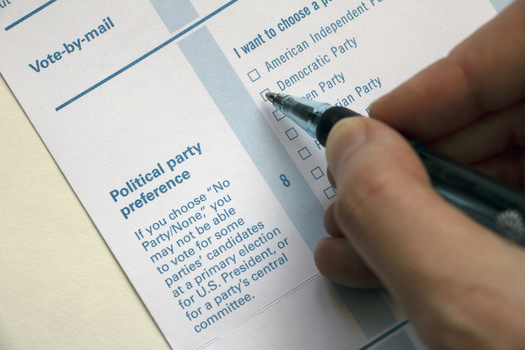CHARLESTON, W.Va. — Last week, state officials announced that West Virginians who want to vote by mail because of the coronavirus pandemic will have the option to do so in the November election, but this time they won’t automatically be mailed an absentee-ballot request form.
That’s a change from the state’s Democratic primary election in June, when every registered voter automatically was mailed an absentee voter application. The Secretary of State’s office has said there will be a new online system for absentee-ballot requests in place this fall, or residents can request a mail-in ballot by mail, over the phone or in person.
Policy Director at the ACLU of West Virginia Eli Baumwell said even simple changes can dissuade people from voting.
“Again, there are a number of people who are probably not paying attention to the news about elections, who are going to expect now that these ballot applications are going to come in the mail,” Baumwell said. “And, by the time that they find that that’s not the process, they may have missed that opportunity.”
According to data from the Secretary of State’s office, more than 262,000 voters requested absentee ballots for the primary election. Baumwell said the online application to request a ballot will be available at GoVoteWV.com. The site is slated to go live on August 11.
He said budget woes and concerns about potential voter fraud fueled the state’s decision not to automatically send out mail-in ballots for the general election.
“The Secretary of State’s office has pointed to funding issues, as well as concerns about a particular executive order from the governor,” he said. “I’ve heard concerns from county clerks that it’s too much extra effort.”
Baumwell pointed out many residents lack internet service and will not be able to easily access the online portal, especially during the COVID-19 crisis.
“A lot of places that people who don’t have reliable internet access might go – for example, libraries – are under limited hours if they are open at all. The same thing could be said for certain government offices,” he said. “For people who don’t have reliable transportation or gas money, frankly, it’s an issue to try to get out to these places to find out that they are closed.”
West Virginia ranks 48th nationwide for the percentage of its population with internet access at home, according to one study from the West Virginia Center on Budget and Policy.

